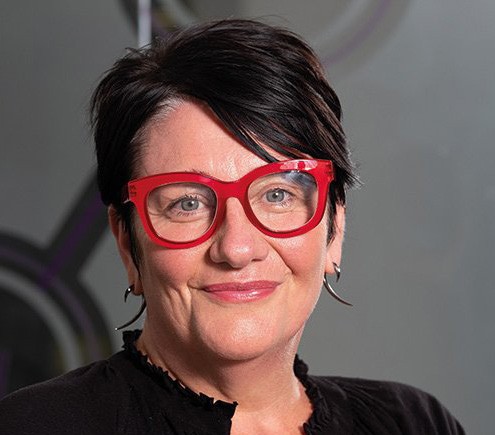Industry Insight
The landscape of menopause care in the UK
Tina Backhouse from Theramex on the treatment access challenges women face

Understanding of menopause has evolved significantly in recent years. Driven by increased public awareness and a growing emphasis on women’s health in both the UK media and government, the way we talk about menopause – and the taboos associated with it – has changed.
However, menopause remains a time of a woman’s life that is marked by physical and mental symptoms that can be distressing and confusing, even with the right care and support.1
Symptoms such as joint pain, difficulty sleeping and brain fog can significantly reduce quality of life and decrease productivity in the workforce, with many women choosing to take a step back from their careers due to a lack of support.2
Though there have been efforts to address these issues – including the government’s appointment of a ‘menopause employment champion’ – there are still huge discrepancies in access to menopause treatment across the UK.3
Exacerbating factors
Unfortunately, a complex postcode lottery continues to affect access to menopause care within the NHS. Discrepancies persist in prescribing rates, formularies, GP education and the availability of specialist menopause clinics, leading to unequal care for women across different areas of the country.4
In the most deprived regions, the prescribing rate for hormone replacement therapy (HRT) is 18% lower than in affluent areas,5 meaning that the likelihood of women accessing care is down to location, rather than need.
Formularies, which determine the various ways HRT can be prescribed (eg patches or pills), also vary from region to region. As a result, some women have fewer options than others when it comes to finding the right treatment that works for them, affecting the choice they have over their own care.
And, while menopause clinics are an excellent initiative, the average wait time for a first appointment is double NHS England’s 18-week target for treatment.6 Even if a woman manages to get a referral, the nearest clinic could be miles away – meaning some women must either travel long distances or pay for private healthcare to access the treatment or support they need.
To effectively address these challenges requires ongoing governmental support. However, gynaecological health has been associated with significant NHS backlog7 and the recent NHS planning guidance did not appear to include women’s health hub targets.8
For those experiencing symptoms of menopause, the community-based health hubs are crucial for delivering more care and improving women’s access to specialist clinicians, expert advice and support. For women’s health more widely, the hubs also provide support that is much-needed through a range of services, including contraception, menstrual health, menopause, abortion and screening.9
Ultimately, it is clear there is significant need for a systematic commitment to improving women’s health that goes beyond menopause.
“ Discrepancies persist in prescribing rates, formularies, GP education and specialist clinics ”
Tackling inequalities
While awareness, care and treatment of menopause is in a better place than ever before, we still have a long way to go.
As we face a menopause landscape filled with inequalities, it is important that we continue to rethink how women’s healthcare is planned, address the postcode lottery and prioritise personalised treatment strategies that enable women everywhere to access the care and support that they need.
At this pivotal moment in healthcare, we cannot let our commitment to menopause – and women’s health more widely – lapse. We must continue to build on the progress made so far to ensure that 51% of the population receive the treatment they need to live full lives.
References
1. Visit: https://www.oxfordhealth.nhs.uk/oxon-talking-therapies/2024/11/01/navigating-menopause-the-power-of-cbt-lifestyle-changes-diet-and-hrt/
2. Visit: committees.parliament.uk/publications/23281/documents/169819/default
3. pmc.ncbi.nlm.nih.gov/articles/PMC10657761
4. Visit: ft.com/content/9b343abf-59a0-47f9-9174-350648664d1d
5. Hillman S et al (2020), 'Socioeconomic status and HRT prescribing: a study of practice-level data in England', Br J Gen Pract, 29, 70(700), e772-e777
6. Visit: inews.co.uk/news/women-menopauseappointments-2025-2275134
7. Visit: https://www.rcog.org.uk/news/new-rcog-report-reveals-devastating-impact-of-uk-gynaecology-care-crisis-on-women-and-nhs-staff/
8. Visit: https://www.telegraph.co.uk/news/2025/01/27/wes-streeting-dumps-womens-health-target-from-nhs-plan/
9. Visit: https://www.gov.uk/government/publications/womens-health-hubs-information-and-guidance/womens-health-hubs-core-specification

Tina Backhouse is general manager at Theramex. She has over 25 years’ experience in global senior leadership roles in the pharma industry and has launched innovative products across a diverse range of therapy areas within both large and small pharma companies. Most recently Tina served as business manager at Ascensia Diabetes Care having spent the previous 12 years at Pfizer. Tina joined Theramex to lead the UK Women’s Health business in July 2020.